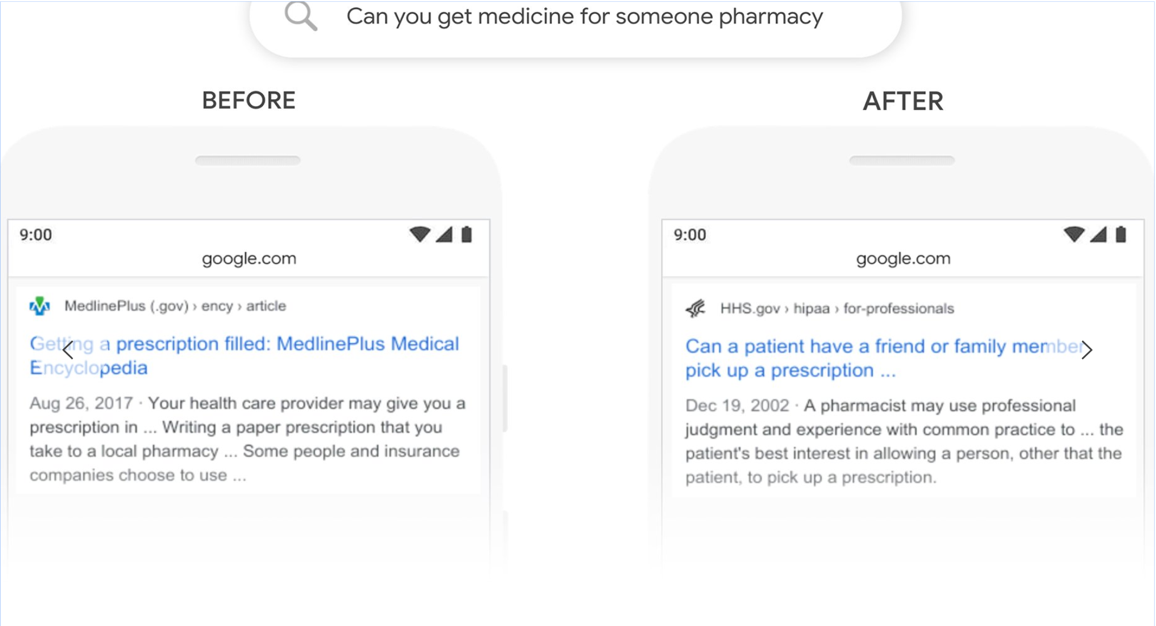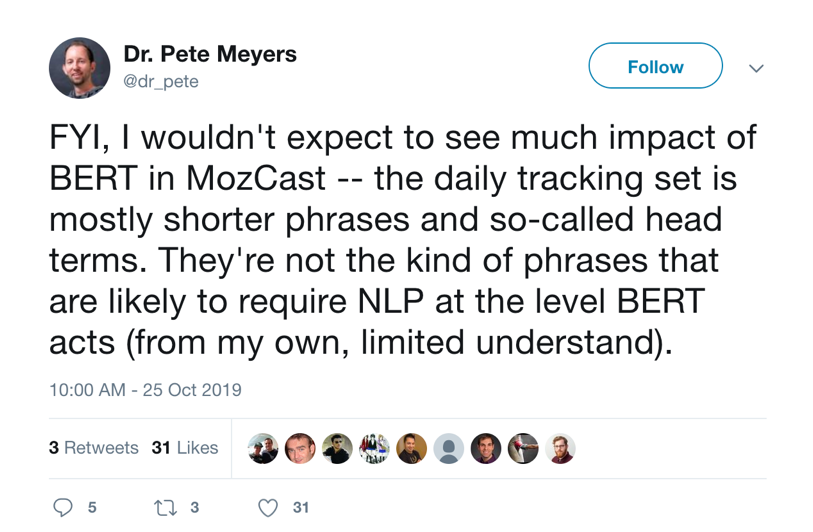Oh geez…not another one
Once again, Google has rolled out another algorithm change. For those of you who are already familiar with Search Ranking system updates, scroll on down to “Changes.” For those learning about how it works for the very first time, buckle up!
Essentially, it takes a lot of effort to make Google work as smoothly as it does. Just as your car needs regular tune-ups, the world’s most popular search engine is continually being tweaked. Google does so several times a year, releasing changes ranging from minor bug fixes to algorithm overhauls.
The most recent change they have announced is BERT, short for Bidirectional Encoder Representations from Transformers. In this article, we will explore what it does, how it affects searches moving forward, and what we see happening in the future.
Changes
BERT is designed to make search results more accurate. It is Google’s best attempt to date to better understand language processing and the intent behind it. Essentially, BERT is meant to figure out what the heck people are trying to say.
For example, imagine that your friend is feeling ill. You want to pick up their medicine for them but are not sure whether the pharmacy will allow you to do so. A quick search on Google before the update would just show you results about filling a prescription. But, after BERT, Google recognized that “for someone” was an important part of the context.

Impact
Since the rollout, many of the popular tracking sites have not recorded a significant drop in traffic. This is because BERT is not likely to show up in the same way that past updates have. According to Google, it is designed to understand “longer, more conversational queries.”
Third party tools primarily track shorter terms at the top of the conversion funnel. These searches do not need the advanced language appraisal that BERT provides. Dr. Pete Meyers at Moz confirmed as much, explaining that Mozcast is not likely to pick up on the subtle changes going on.

Predictions
Traffic
As time goes on, sites may see a slight drop in traffic. BERT will start to filter out searches with a high bounce rate or low conversions. This is a good thing. The users being directed away from your page are probably just ones that would have lowered your metrics. However, if you see a significant change, it might be time to reevaluate your content and site structure.
Content
In the past, the general advice to rank well with Google was to create long-form content filled with carefully placed keywords. This is no longer necessary. Now, pages with content that is useful, interesting, and unique will be rewarded. Aim to write for your audience instead of for Google. And, do a more thorough job of it than your competitors.
Client Recommendations
The best way to prepare for BERT is to, in a sense, not prepare for it at all. Reevaluate your work with your readers in mind. The better you serve them, the better your rankings will be.
Remember, Google is a business. Their aim is to cater to their customers by figuring out exactly what they are searching for. From an SEO/SEM standpoint, this means you should focus on long-tail terms that directly address what your page is about. From a design standpoint, make sure your content is easy to navigate so that users are not abandoning your site for one that is better organized. And really, isn’t this all stuff we should be doing anyways?
Do you need some help optimizing your website within Google’s ever-changing landscape? We would love to chat! Contact Us today to talk with one of our experienced team members.




